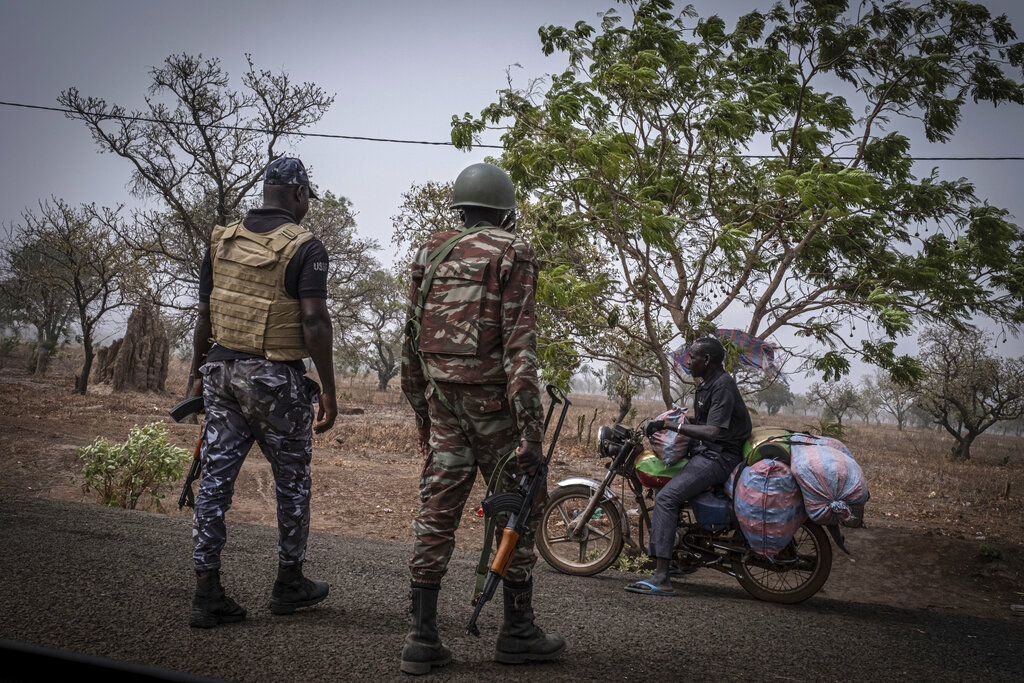ADF STAFF
Terrorists have left northern Benin and established a new base in northern Nigeria’s Kainji Lake National Park, a 5,300-square-kilometer former tourist attraction.
The park, home to one of West Africa’s fast-declining lion populations, is currently closed and the security situation there is “getting out of hand,” Kars de Bruijne, a senior research fellow at the Clingendael Institute, told The Associated Press.
It is “a much more explosive situation than we had anticipated,” added de Bruijne, who co-authored a new report on the situation.
Violent extremist organizations have operated in the park since at least 2021, but there have been increased attacks on neighboring villages and roads over the last year. The insurgents take hostages for ransom and engage in poaching, illegal logging and illegal mining. Incidents linked to extremists in the park have increased sharply since early 2023, when 29 incidents were reported, compared to five in 2022, according to a Clingendael report.
“Before, it was like a tourism center (but) now, people find it difficult to pass through there,” John Yerima, who lives in nearby New Bussa, told The Associated Press. “You cannot enter that road (leading to the park) now. It is dangerous seriously.”
The terrorists’ presence may also threaten the safety and functionality of Kainji Dam, which plays a crucial role in Nigeria’s hydroelectric power generation and irrigation systems.
Violence erupted in April 2023 after an armed group based at the base of a mountain in the park abducted 12 residents in the Niger State town of Ibbi and demanded ransom. A local vigilante group countered with an attack that killed 50 members of the terror group. In response, the terrorists slaughtered nine of the hostages — six women and three men, including the registrar of the Sharia court in Ibbi. Two vigilantes were also killed in the four-day battle, according to Nigeria’s Leadership newspaper.
Observers have long maintained that the remote, mineral-rich region could offer expansion opportunities for terror groups from the Sahel and Lake Chad Basin.
According to the Clingendael report, extremists in the park likely include Jama’at Nusrat al-Islam wal-Muslimin and Darul Salam, “a group linked to Boko Haram, if not fully affiliated — with an open attitude towards bandits.”
How the group from Benin will interact with other armed groups in the area is unclear, but its relocation offers it opportunities to claim success in Benin and Nigeria.
“A link between Lake Chad and the Sahel is a major opportunity for al-Qaida and the Islamic State to boast about their profiles as leaders of global jihad,” the Clingendael report said.
Reacting to the report, Maj. Gen. Edward Buba, Nigeria’s director of defense media operations, said troops with Operation Whirl Punch are conducting operations in terrorist strongholds in north-central Nigeria, “which includes Kainji Lake Park.”
“Additionally, troops of Operation Hadarin Daji are equally doing the same to terrorists in Kebbi State and the west of the country,” Buba told Politics Nigeria. “The objective of our operations is to destroy these terrorists and dismantle their military capabilities, so citizens are safe and protected.”
Citing terrorists’ occupation of the park, Nigeria’s government in late June announced plans to acquire 50 new aircraft to strengthen security efforts in the region, Nigeria’s Punch newspaper reported. The aircraft include 12 AH-1 attack helicopters, 24 M-346 attack aircraft, 12 Augusta Westland 109 helicopters and two Casa 295 medium airlift aircraft, according to Nigerian Chief of Air Staff, Marshal Bala Abubakar.
In an editorial, Punch called for a “permanent security presence,” including international support, in and around the park.
“Implementing advanced monitoring and surveillance technologies, such as drones and satellite imagery, can provide real-time information on illegal activities and movement within the park, enabling quicker and more effective responses,” the editorial said.

